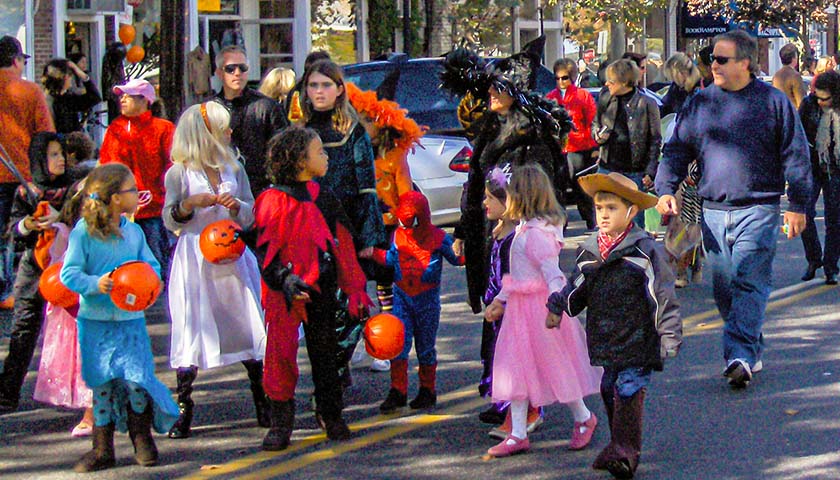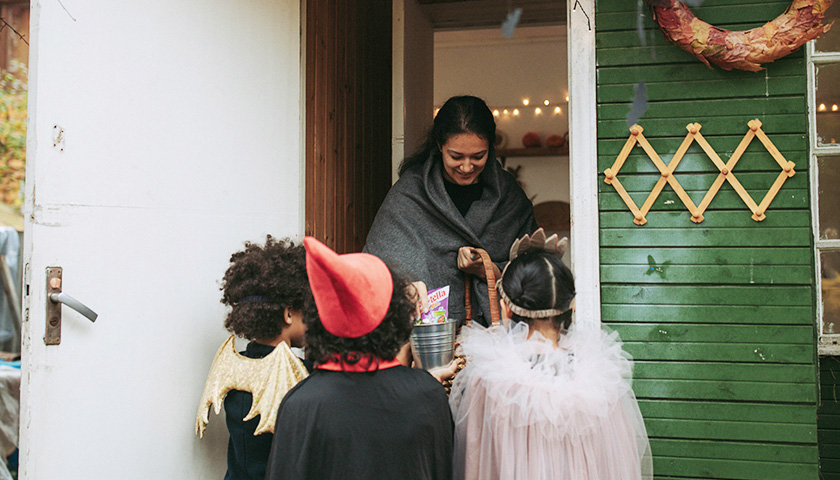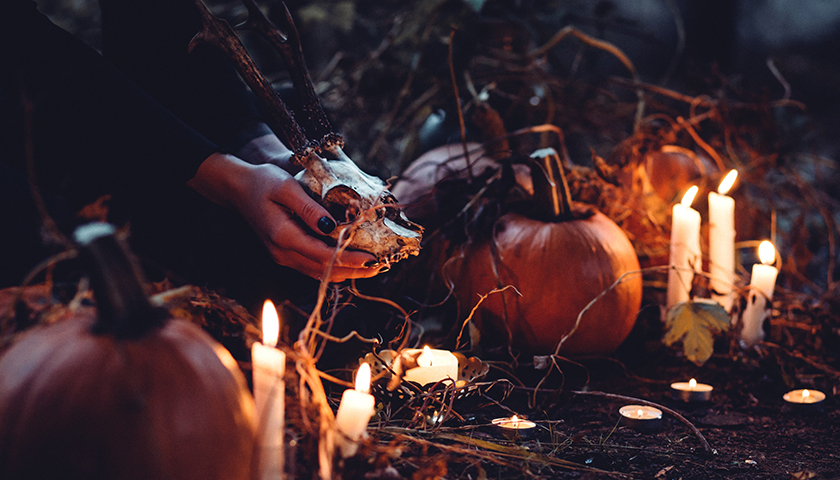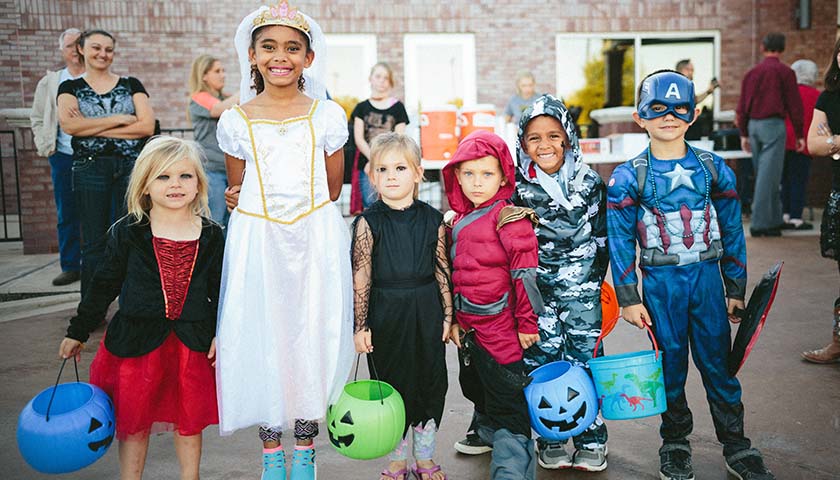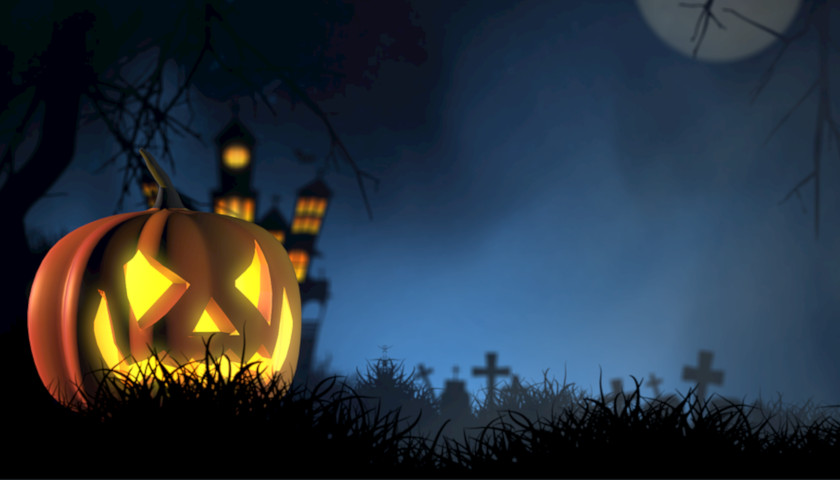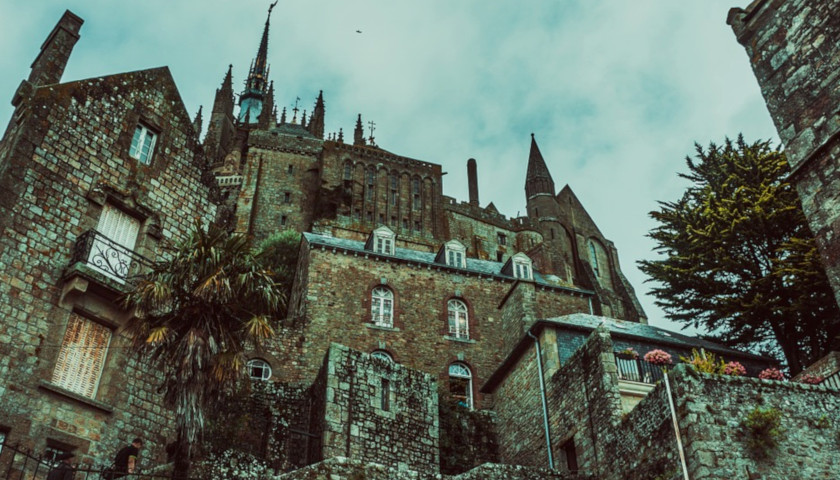Conventional wisdom holds that Halloween is essentially a secular and pagan holiday, the result of the Christian Church appropriating an ancient Celtic harvest festival. But one strain of critical opinion tends to the view that the holiday was thoroughly Christian from the start.
Read MoreTag: Halloween
Commentary: Halloween Is the Night Kids in the U.S.A. Discover Economics
Tomorrow night American kids will observe a tradition not widely celebrated in the rest of the world: Halloween. They will dress up as ghosts, witches, goblins, politicians, and other scary things, then go door to door greeting neighbors with Trick or treat! Residents will drop candy in the bags the children are carrying.
Regardless of anyone’s intention, the tradition nicely demonstrates the creativity of free exchange.
Read MoreCommentary: Halloween’s Roots in the Christian Tradition
Conventional wisdom holds that Halloween is essentially a secular and pagan holiday, the result of the Christian Church appropriating an ancient Celtic harvest festival. But one strain of critical opinion tends to the view that the holiday was thoroughly Christian from the start.
In the church calendar, Halloween (All Hallows’ Eve) is the beginning of a triduum of holidays commemorating the dead, continuing with All Saints’ Day on November 1 and All Souls’ Day on November 2. It was common practice among the early Christians to commemorate the deaths of various martyrs at the places of their demise. In the 9th century Pope Gregory IV decided that the time had come for a single universal feast to commemorate all the saints, as well as a day to pray for one’s deceased loved ones. The pope chose a time of year—the end of harvest and the beginning of winter—when many people’s thoughts naturally turned to the idea of death.
The macabre aspects which have grown up around Halloween in modern times—the emphasis on witches, ghosts and other ghoulish figures, the glorification of gore and violence—have led many people to doubt its Christian character and many Christians to shun it. Yet according to some historians, these demonic elements of the holiday originated from a distinctively medieval Christian idea of exorcising evil by ridiculing it. Christian theology holds that Jesus conquered sin and death; and death loses its sting precisely when one is able to laugh at it.
Read MoreMichigan Elementary Schools Cancel Halloween, Valentine’s Day over ‘Exclusion’ of Certain Students
In East Lansing, Michigan, multiple elementary schools have announced the sudden cancellation of the celebrations of two beloved holidays, Halloween and Valentine’s Day, baselessly claiming that these holidays represent discrimination against some students, as reported by USA Today.
Schools in the East Lansing Public Schools (ELPS) district sent a joint letter to parents, signed by the various principals in the district, declaring that the schools would no longer recognize either holiday. The letter claims that the decision was due to these holidays resulting in some families feeling uncomfortable due to their students being excluded from the celebrations.
Read MoreSeattle Elementary School Cancels Halloween Parade Because It ‘Marginalizes Students of Color’
A Seattle elementary school cancelled its Halloween parade citing concerns that the annual event “marginalizes students of color who do not celebrate the holiday,” according to Jason Rantz of radio station 770 KTTH.
Benjamin Franklin Day Elementary (B.F. Day), part of Seattle Public Schools (SPS) also said black males do not celebrate Halloween, Rantz reported on 770 KTTH. The school administration said its decision to cancel involved “foundational beliefs around equity for our students and families.”
Read MoreCommentary: Five Reasons We Love Halloween
When I was a kid, Halloween was for kids only. Adults were there to hand out candy — and monitor the kids to make sure we weren’t enjoying the culture of ghosts, ghouls, and goblins too much. That would be dabbling in evil, and our souls might be corrupted. My mom, for example, banned fake blood from the house. At the age of 15 or so, your Halloween fun was expected to be over.
Read MoreMake Halloween Spooky Again with a Visit to These Real-Life Haunts
As we come to the end of summer and begin the season of winter, one hundred and seventy-nine million Americans will celebrate the season with urban legends, scary bonfire stories, and armies of children carrying candy up and down the streets of in what was once referred to as Samhain,…
Read More
